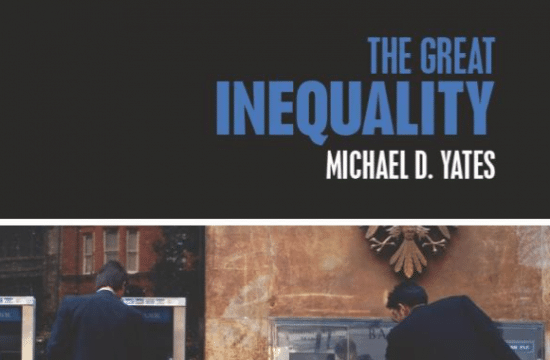 Apollo is a small town in western Pennsylvania, part of the old coal and steel belt that surrounds Pittsburgh. The shallow Kiskiminitas River, a tributary of the Allegheny, flows through the borough. Although it is close to my hometown, I never knew much about it, except that my artist uncle once made a glass carving for the town to commemorate the Apollo astronauts the community had embraced.
Apollo is a small town in western Pennsylvania, part of the old coal and steel belt that surrounds Pittsburgh. The shallow Kiskiminitas River, a tributary of the Allegheny, flows through the borough. Although it is close to my hometown, I never knew much about it, except that my artist uncle once made a glass carving for the town to commemorate the Apollo astronauts the community had embraced.
I remember passing through Apollo and noticing a large industrial complex at the edge of town. Years later, I learned that this plant was owned by the Babcock & Wilcox Corporation, and it produced uranium fuel. Babcock & Wilcox, a global conglomerate, has been involved in nuclear-related industrial production ever since the Manhattan Project, designing, fabricating, and supplying components for nuclear power plants, ships, submarines, and weapons.
The facility in Apollo and another one in nearby Parks Township, initially built by the Nuclear Materials and Equipment Corporation (NUMEC) in 1957 and later bought by the Atlantic Richfield Company (ARCO) and then by Babcock & Wilcox, closed in 1986. Left behind were contaminated land and water and sick and dead residents. Victims and their families sued the companies in the mid-1990s for damages suffered, and ARCO and Babcock & Wilcox were forced to pay $80 million to compensate victims for cancers and loss of property value. Sadly, by the time the lawsuits were settled, in 2008 and 2009, 40 percent of the claimants had died.
Meanwhile, Babcock & Wilcox declared bankruptcy in 2000 to avoid liability in thousands of lawsuits by employees subjected to asbestos, a substance that businesses have known since the 1930s causes cancer. As a condition of exiting bankruptcy, it set up a trust fund to pay asbestos claimants; the amount of money put aside was far less than the company would very likely have had to pay if it had faced those lawsuits.
Recently, nearly one hundred new lawsuits against ARCO and Babcock & Wilcox were filed by scores of people claiming that they got cancer as a result of exposure to radiation. A report to the federal court by an expert witness stated that the two companies “knew about worst-in-the-nation releases of radioactive materials that spanned decades, but opted not to do enough to protect neighbors from cancer-causing dust.” NUMEC showed an almost wanton disregard for safety. “In the first few years, the company lost so much uranium—enough to build several nuclear bombs—that the FBI investigated whether someone was actually stealing the material and selling it to a foreign country!” At the Parks Township facility, which produced plutonium and enriched uranium, NUMEC buried radioactive waste in an open unfenced field close to where children played. It is implausible that Babcock Wilcox, with its many nuclear projects over a long period of time, did not know about the problems with the entities it was buying. Yet, it did nothing to protect its workers or the community. According to the Pittsburgh Post-Gazette,
A top official in 1974 viewed memos on the facility [which Babcock Wilcox bought in 1971] and wrote that if they were accurate, ‘we are guilty of gross irresponsibility in continuing to operate our uranium facilities.’ He threatened to shut them down, but the company didn’t stop making highly enriched uranium there until 1978, and it ended all production in 1984.
The actions of these corporations helped to destroy a town and its people, and it appears they knew what they were doing. They not only located a nuclear plant in a town, but then failed to shut it down when they knew that workers and residents were being poisoned. “ ‘A lot of people have lost not only their entire savings but their homes,’ due to the health effects and loss of property value caused by the plants, said Patricia Ameno, of Leechburg, who sued the companies in a previous round of litigation . . . . ‘Their families have been torn apart by illnesses and deaths.’” Ms. Ameno, whose body has been wracked by cancer and brain tumors, added, “I saw the town I grew up in … disintegrating, just like the bricks on that plant.” One of the persons who posted a comment on the Post-Gazette article noted that a 1999 piece in the same newspaper showed that one-sixth of Apollo’s population had some type of cancer!
I posted the Post-Gazette story on a facebook page dedicated to men and women who grew up in my hometown in the 1950s and 1960s. Most know about the Apollo plant. And they all lived in a town dominated by the Pittsburgh Plate Glass Company, which poisoned its own employees with asbestos and silica dust and whose now abandoned property is so full of harmful chemicals that it cannot even donate it to the town. Outside town, near the company-owned fields on which I used to play baseball, “waste lagoons” built by the company and fed by pipes that went under the river have been leaking “arsenic, chromium, lead, manganese, copper, zinc, mercury and other toxic compounds into the river.” Despite this, only two persons commented on what I posted. If a post concerns some ancient bit of trivia or the local hoagie shop, members of the group fall all over themselves to make some meaningless remark. But something so important is met with silence.
Sadly, a family member is a manager at Babcock Wilcox. I have always wondered how he could do this. The division of the company in which he works is knee-deep in the bowels of the military-industrial system. It “manages complex, high-consequence nuclear and national security operations, including nuclear production facilities and the nation’s Strategic Petroleum Reserve.” In others words, it is part of the U.S. war machine, making money by helping the government kill people, just like it killed people more directly in Apollo.
Thousands of people grew up in and near Apollo. They have learned what harm the corporations who employed them and their relatives and friends have done and continue to do. Men, women, and children were poisoned by that uranium fuel plant and that glass plant. Yet, for the most part, they ignore this, content to contemplate instead their “warm and fuzzy” memories, as one person put it on my hometown facebook page. And many hundreds of thousands of men and women work as managers for horrendous corporate criminals like Babcock Wilcox without ever questioning their actions. Perhaps this tells us something about what those who raise their voices in protest are up against. Including the plaintiffs challenging Babcock Wilcox. I wish them success.











My apologies for the ENTIRE engineering profession. I served as a VOLUNTEER OFFICER for NSPE, ASME, IEEE and other engineering NON-PROFIT societies. B & W won awards and were somewhat respected. They fooled me.
That is based upon my limited understanding of your article. This is an explanation and NOT an excuse. Like Madoff, Ponzi schemer, many in the INDUSTRY were fooled and even charmed by Mr. Madoff (evil organization).
My failure is that engineers WANT TO BE POPULAR. They are team players mostly. They are NOT scientists, nor independent critics. They want to get things done and not QUESTION the EVIL BANALITY of top management.
Nuclear reactors and even substances PLUTONIUM are routinely on SPACE craft orbiting the earth. Japanese engineers show their quality on JAPANESE CARS (yes, I am born in USA and drive a USA made car by GM) yet, I can easily point out the NUMEROUS LOW QUALITY defects in my car!!!
Even japanese engineers are turning against the corporate criminal/government system that is building MORE NUKE POWER PLANTS (some of them with Babcock and Wilcox design/equipment) despite the FUKUSHIMA meltdowns and ecology disasters continuing.
Lastly, Apollo – please read again Bullfinch’s Mythology about the ARROGANCE of GODS.
PS. by way of explanation – engineer and technical folks have the ability to ‘compartmentalize their thinking.’ When the engineer plays a ROLE PLAY GAME, he thinks he is the combat soldier shooting in the virtual reality. Confirmed by BRAIN MEASUREMENTS. They rarely use HOLISTIC THINKING or understanding of military-industrial complex. Perhaps, like me, they tend to SKIP HISTORY and PHILOSOPHY and be a top grade in math/physics.
All that is necessary for evil to triumph is for good men and good women to do nothing. the BAIT of good pay jobs in a small town that has no GOOD PAY JOBS is sometimes overwhelming to the average person. Bribery is a term that could be applied to legal and NOT legal acts.
PS. What is the value of a COMMUNIST CHINA life and a USA normal town life? Melamine and poisoning of baby milk. Poisoned Chinese babies according to American Conservative website. Poisoned dogs around the world. Justice was top executives
got the death sentence (with no appeal) and other heavy jail terms.
USA – company ‘donates’ for free and takes a tax writeoff after polluting the land. Top executives get BONUS. None are even charged with a crime or ‘disturbing the peace.’ Some executives and employees/officers continue in NONPROFIT ENGINEERING ORGANIZATIONS relied upon by the US Government. They are able for it seems to be legal to live in a different country and become CITIZEN of ANOTHER COUNTRY (lowers their taxes).
Easy to find the history and patterns on the Internet. Radium poisoning in Montclair, NJ. Three Mile Island nuclear meltdown. Others… and maybe the US Government is still classifying ‘secret items.’
Buy a radiation detector or even use cheapo old camera film. Build your own radiation detector … while it is still LEGAL.
Dear engineer, Thanks for the comments. You make many good points, useful, especially because you have seen the inside of this.
Michael,
Just want to thank you for your keen sense of awareness in your
article. You share your knowledge with a personal touch that the reader easily grasps and digests.
There is an additional question to that I’m sure will haunt you as much as it has haunted me. When you look at where the former nuclear plants in Apollo and Parks Township were located, i.e., Apollo: in corporate confines of a town; within feet of homes, major road (route 66) right against major water-way (Kiski River); a plant with 124 stacks???? Then Parks Township Plutonium Plant: within feet of homes; abutting a dairy farm where all the local schools got their milk free; up against the same major road and river??? WHAT WAS OUR GOVERNMENT THINKING?????
Let’s see if a totally drunk person, carry a half-empty gallon of Jack Daniels, can go to the Motor Vehicles Division and get a drivers license…to me it’s the same thing…only…the drunk driver only takes out a couple of people at a time…not a whole valley.
25 years at this…I don’t know which feeling I have more of—sorrow and grief for all the people or anger at the companies and the governmental agencies that were supposed to be our last line of defense…anger wins as it is my fuel to get the truth out and vindicate those who have lost their lives from the ‘friendly fire’ of continual exposure radiation. The truth is so important here–so that we are not forgotten with all the sacrifices we made and so that no other unsuspecting community will fall for it again.
Thanks Michael—feel free to call me anytime!
Sincerely,
Patty Ameno
Unfortunately, I’m sure Apollo wasn’t the only town that had/has to deal with this. And maybe that’s part of the problem. We all see opportunity, but don’t investigate it further or see the possible consequences. We can also be fooled into thinking what the companies are doing are for the better of the whole area. I think that’s part of what scares me with the Marcellus (excuse my spelling, please) shale issue. I know it’s giving local residents much needed job opportunities, but what are the long term consequences of what they are doing with the surrounding land, employees, and residents?
June, Thanks for the comments. With this economic system today, everything is short-term. Make money today, and who cares about the future? I have read, thought, that Marcellus shale doesn’t generate that many jobs, and often few of them are local.
“Poisoning People in Apollo: All in a Day
Hi I have a family member that recently diagnosed with a brain tumor. The type of Brain Tumor only happens when exposed from radiation. The family member lived worked near the River. Wondering if anyone know of any assistance for someone with possible issues from radiation in this area.
My grandfather died a few decades ago from lung cancer in his late 40s to early 50s, and my aunt was telling me that there is money already set aside for these victims families that they can collect with almost no fighting for it, or very little fighting bc of the undisclosed, unknown, and “complex” material that was uncovered during the clean up process that was so bad that they didn’t want to tell us what it was and would rather pay us all for killing our loved one’s rather than risk having us find out what this material really is, they want us to not know so bad that homeland security was stationed 24/7 in these areas. Does anyone know how much they are offering and who to get in contact with about getting ahold of this money plz? I know the money won’t bring back my loved one but I know he would want me to makesure our children and grandchildren can live in a safe place and not have to worry so much about money in their lives as we’ve lived in ours.
This story reminds me of the Love Canal debacle. I commend those Apollo citizens who have valiantly fought against the big boys. Hurray for them! Unfortunately, I think many many more U.S. towns/boroughs have been contaminated by these large corporations in the name of progress and homeland security, most likely in some towns we are not even yet aware. Sad sad state of affairs.